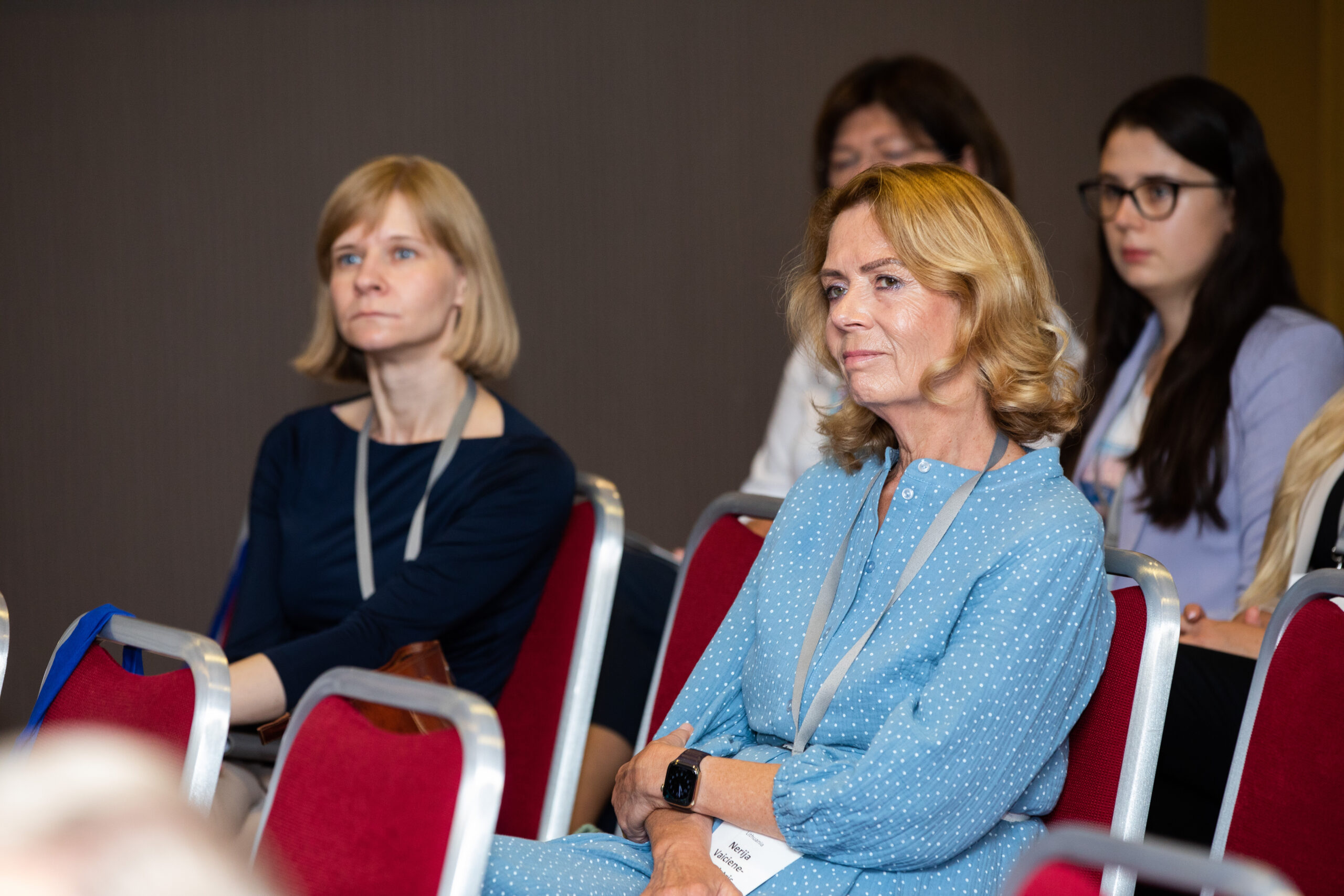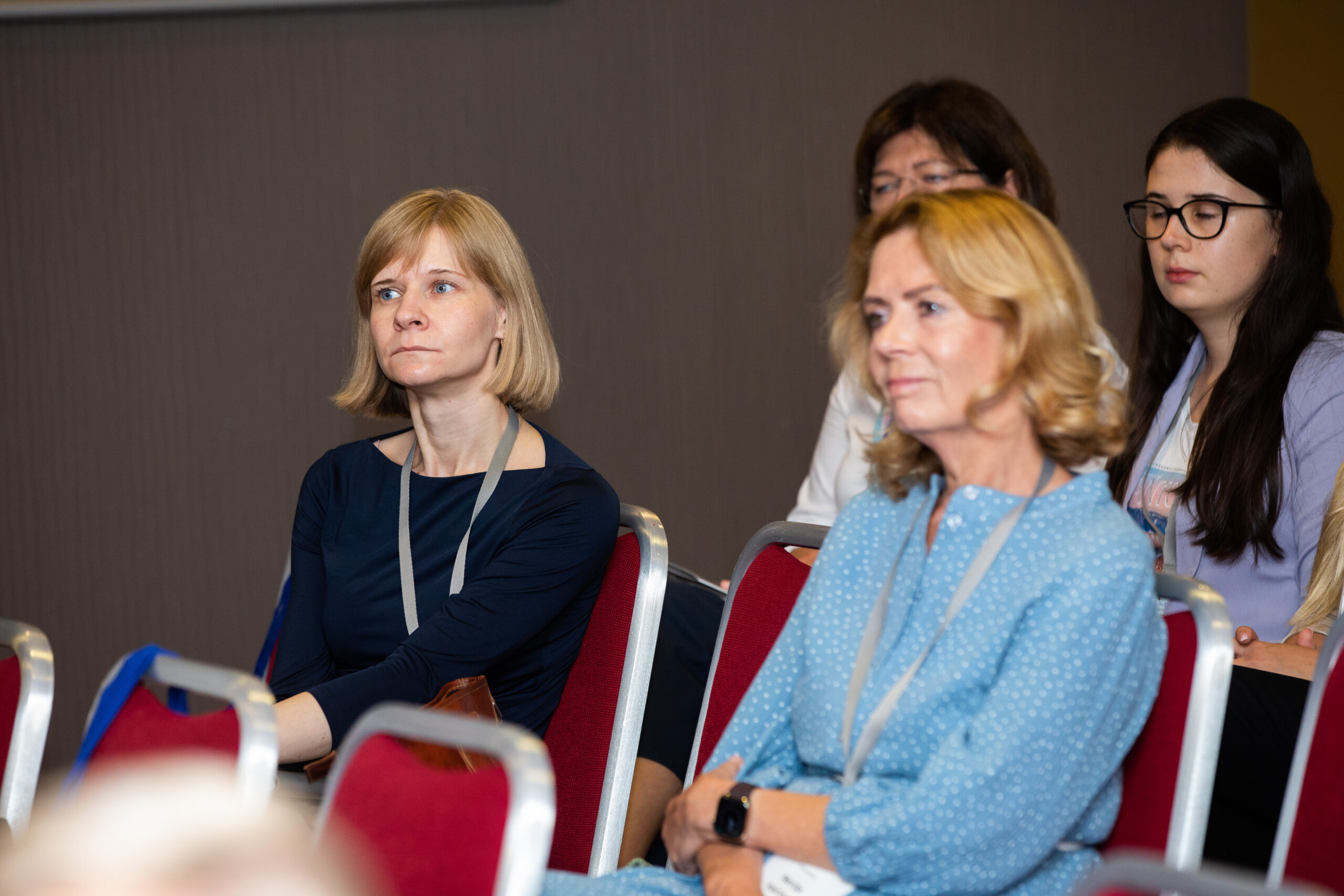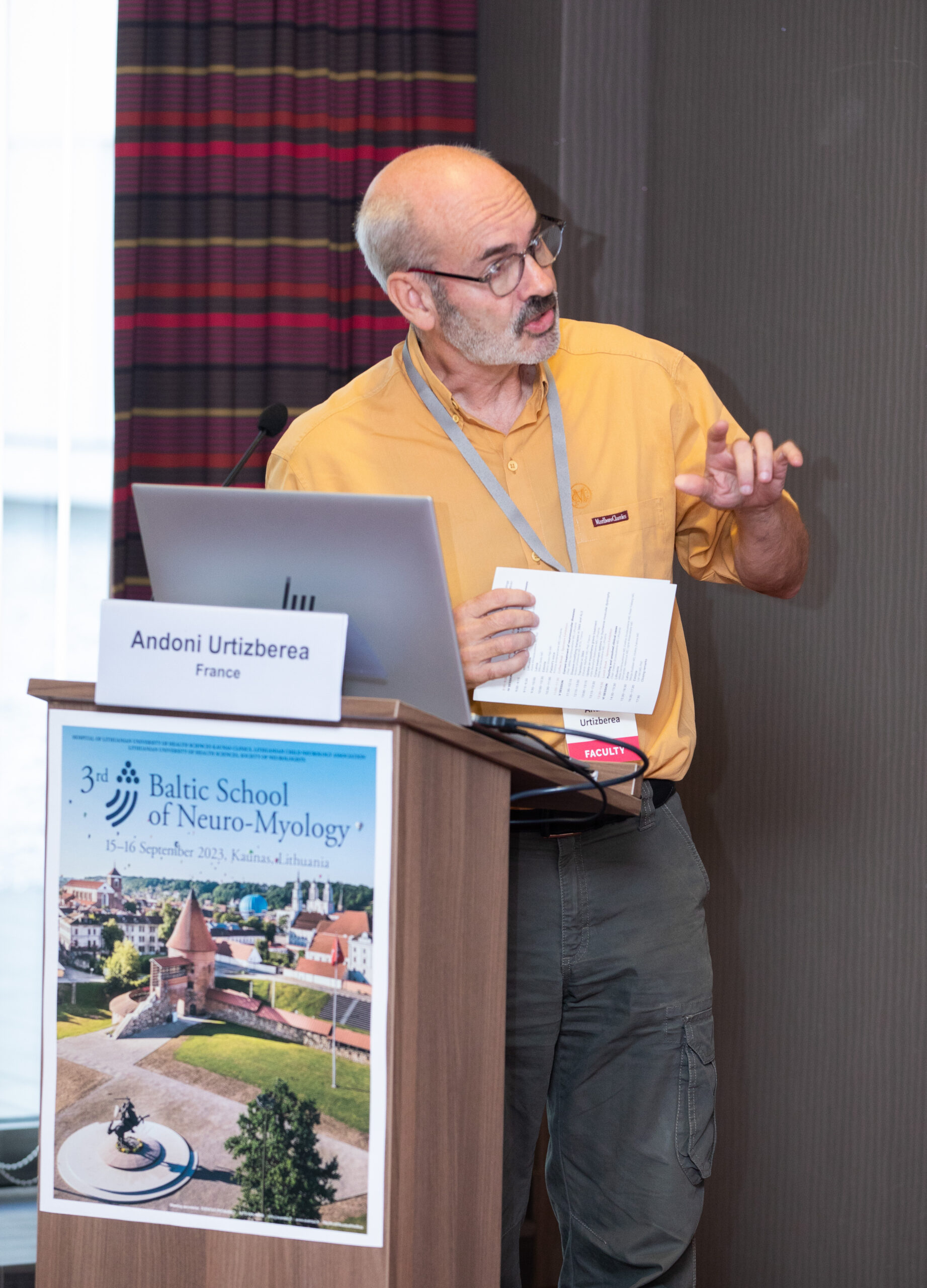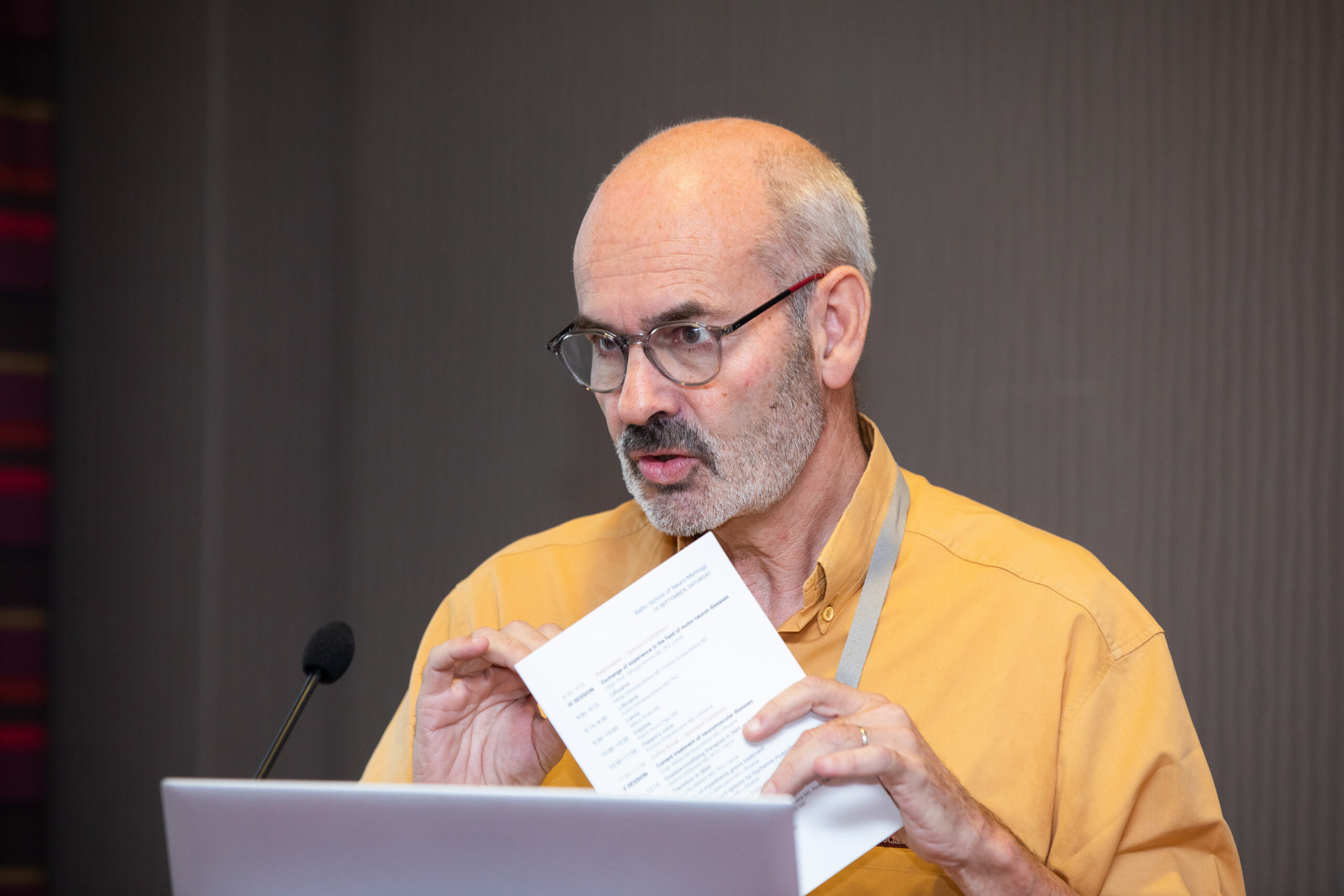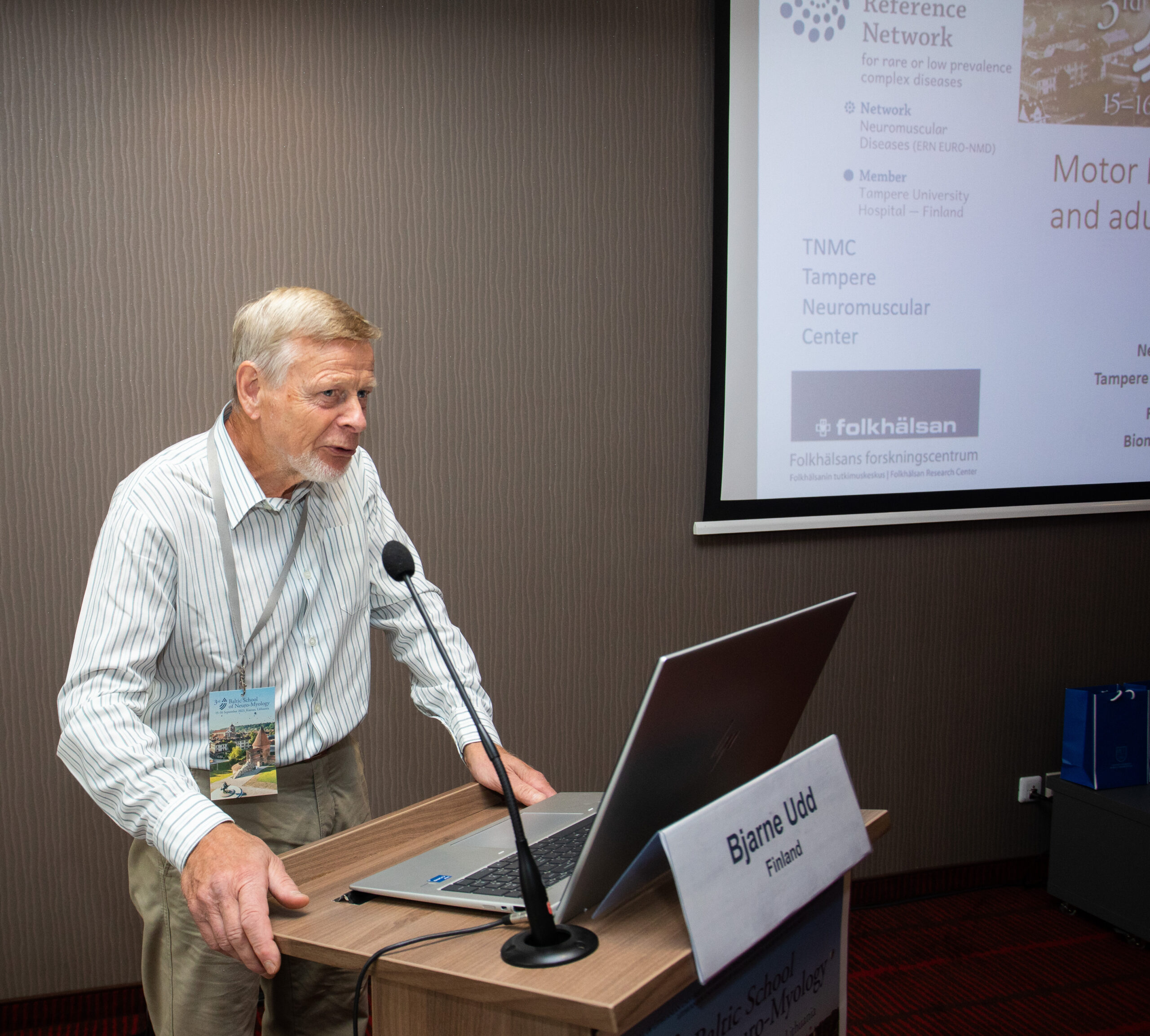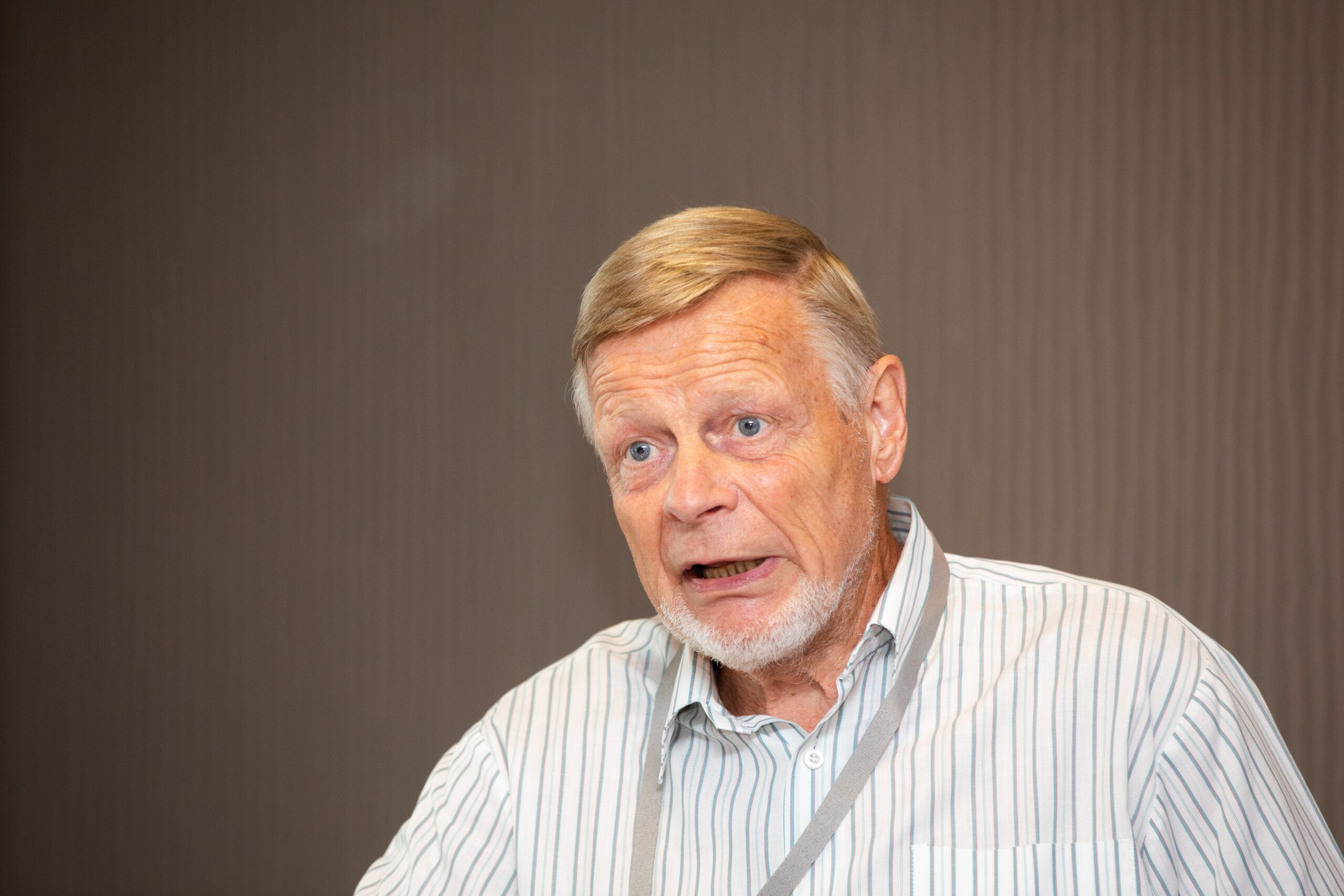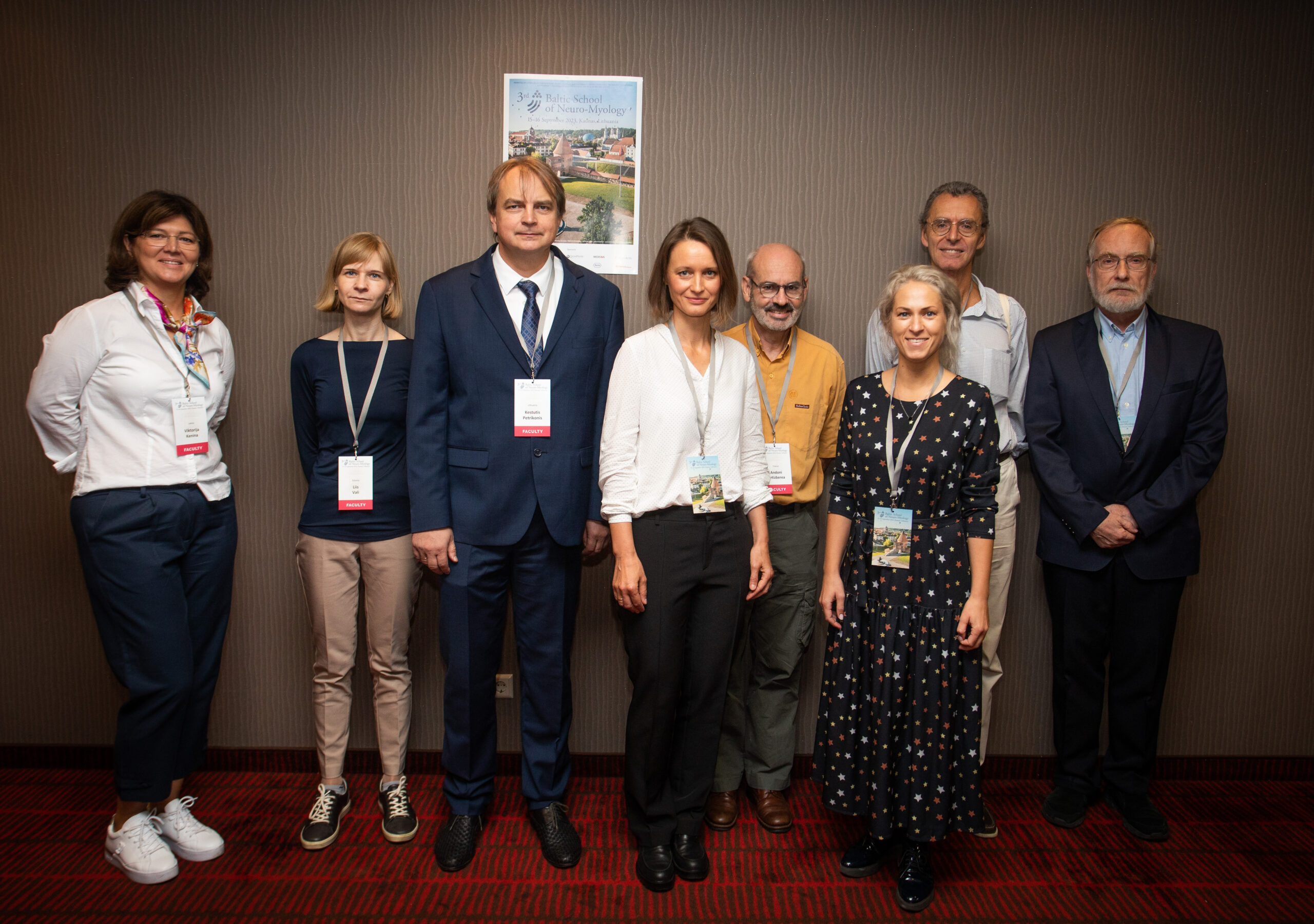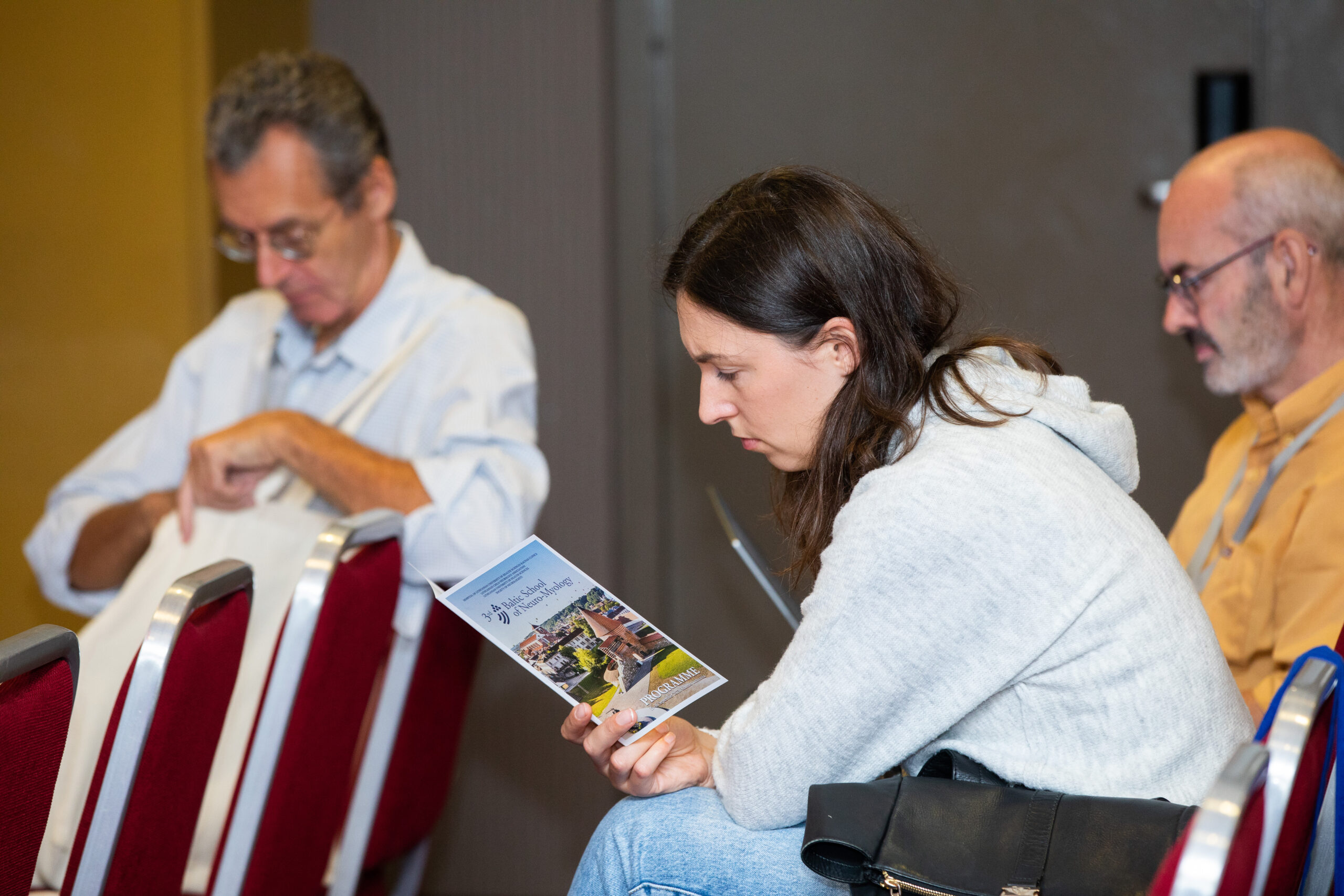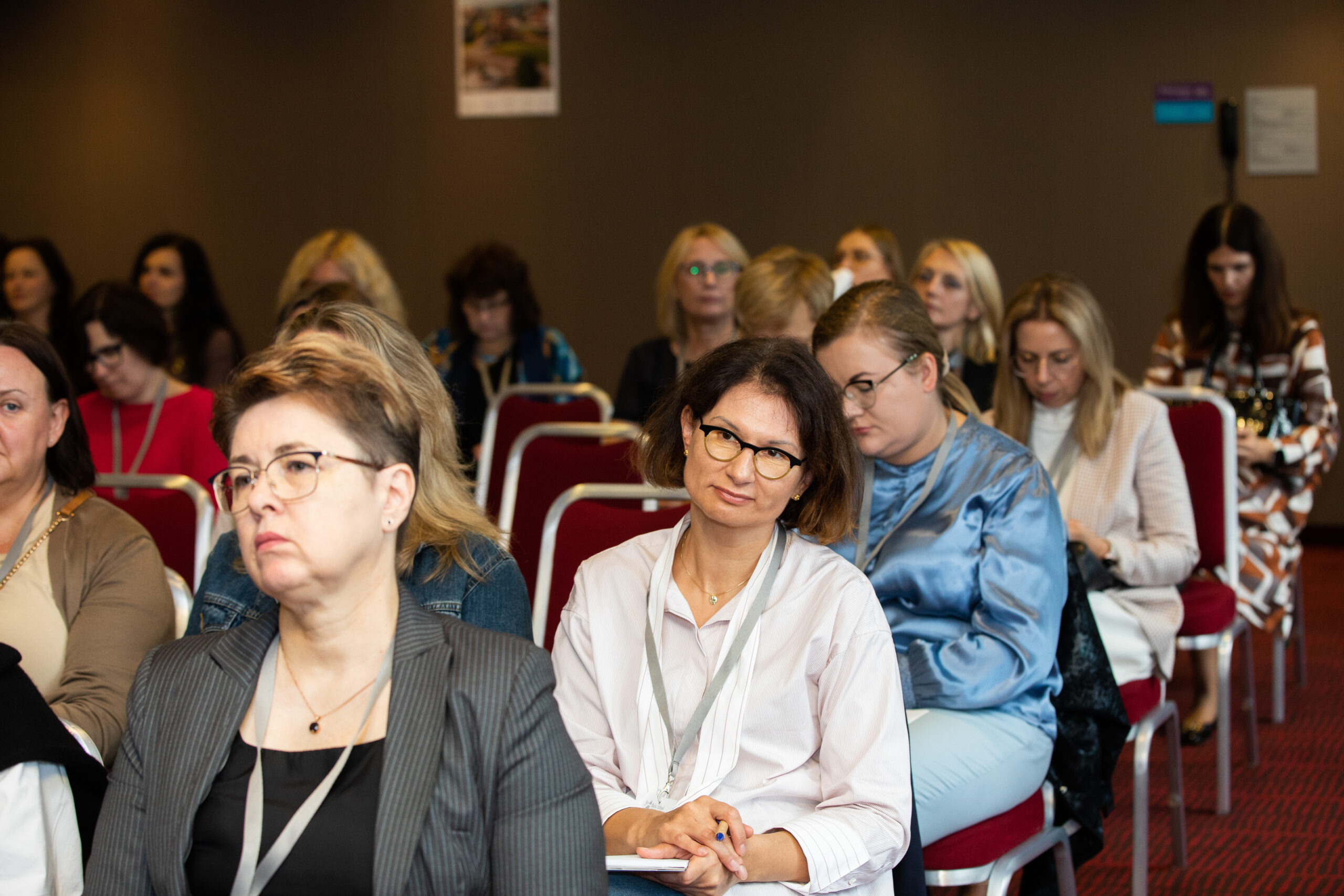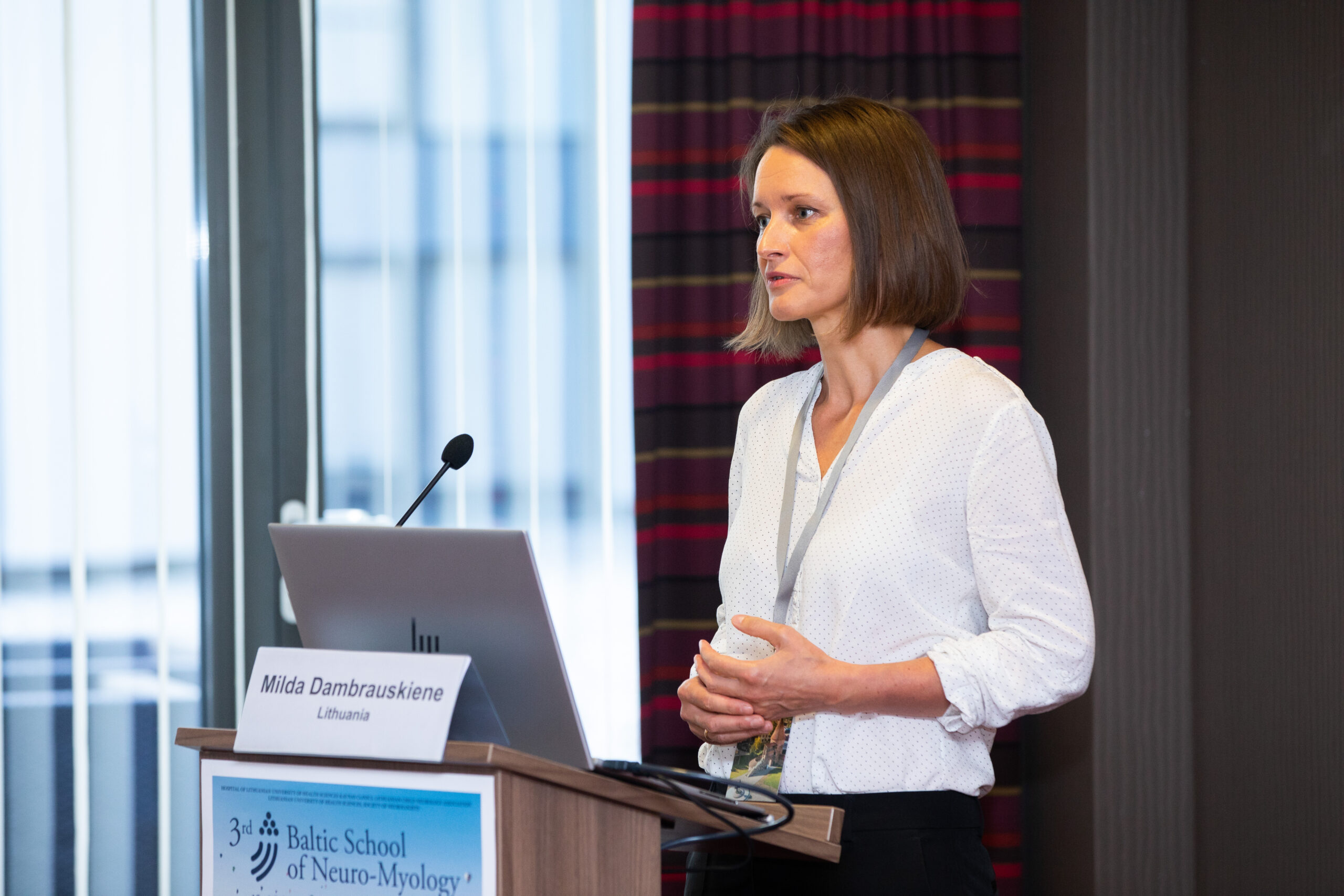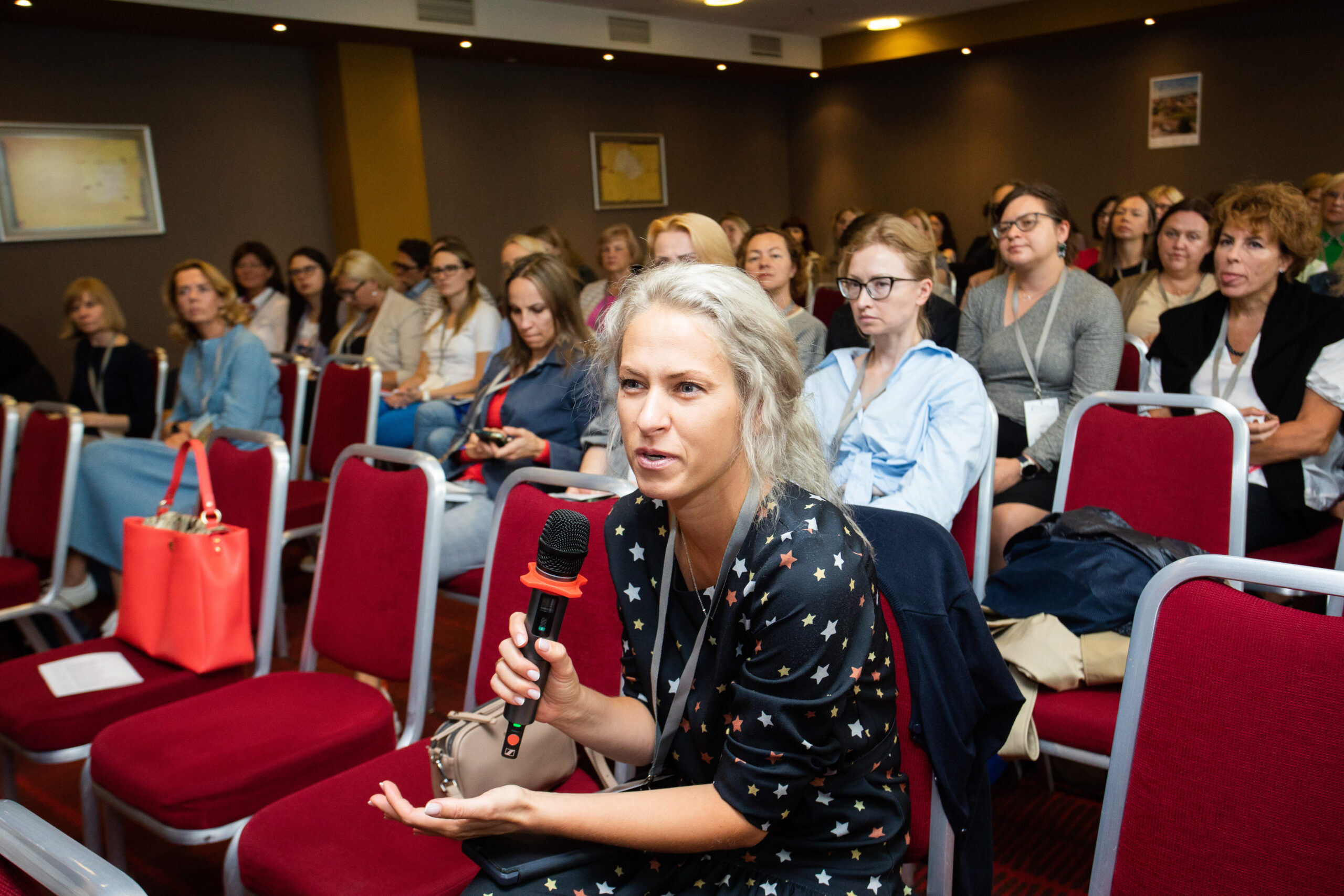Baltic Colleagues Share Best Practices in Neuromuscular Disorders at the 3rd Baltic School of Neuro-Myology
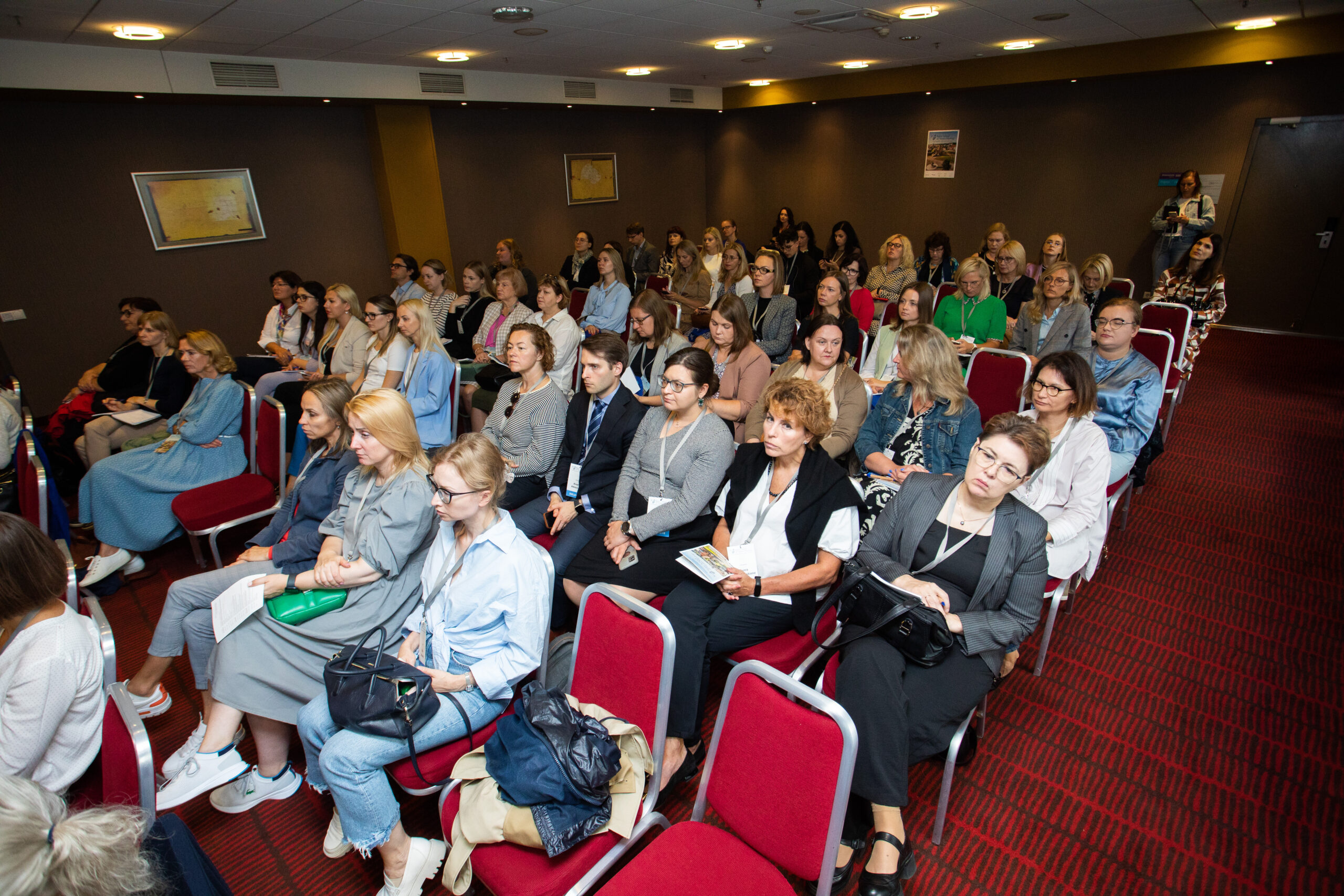
The 3rd Baltic School of Neuro-Myology: Motor Neuron Diseases took place in Kaunas on 15-16 September. The event was aimed at bringing together Lithuanian, Latvian, and Estonian specialists working in the field of neuromuscular diseases and creating a platform for them to learn together, collaborate, and improve patient care.

The conference was organised by the Department of Neurology of the Lithuanian University of Health Sciences (LSMU), the Centre for Neuromuscular Disorders of Kaunas Clinics, the Lithuanian Child Neurology Association, and the Society of Neurologists. The event was accredited by the international organisation TREAT-NMD.
The 3rd Baltic School of Neuro-Myology gathered over 100 participants. They included neurologists, paediatric neurologists, geneticists, physiotherapists, pulmonologists, orthopaedic specialists, and other professionals who deal with patients with motor neurone disorders, progression of the disorder, and the patient’s changing condition.
“This conference has brought together colleagues from the Baltic countries who believe in the possibility of helping patients with neuromuscular disorders and are exploring new solutions for the treatment and diagnosis of these diseases,” said Prof. Dr. Kęstutis Petrikonis, LSMU Vice-Rector for Studies, in his opening remarks.
Close Collaboration over Several Years
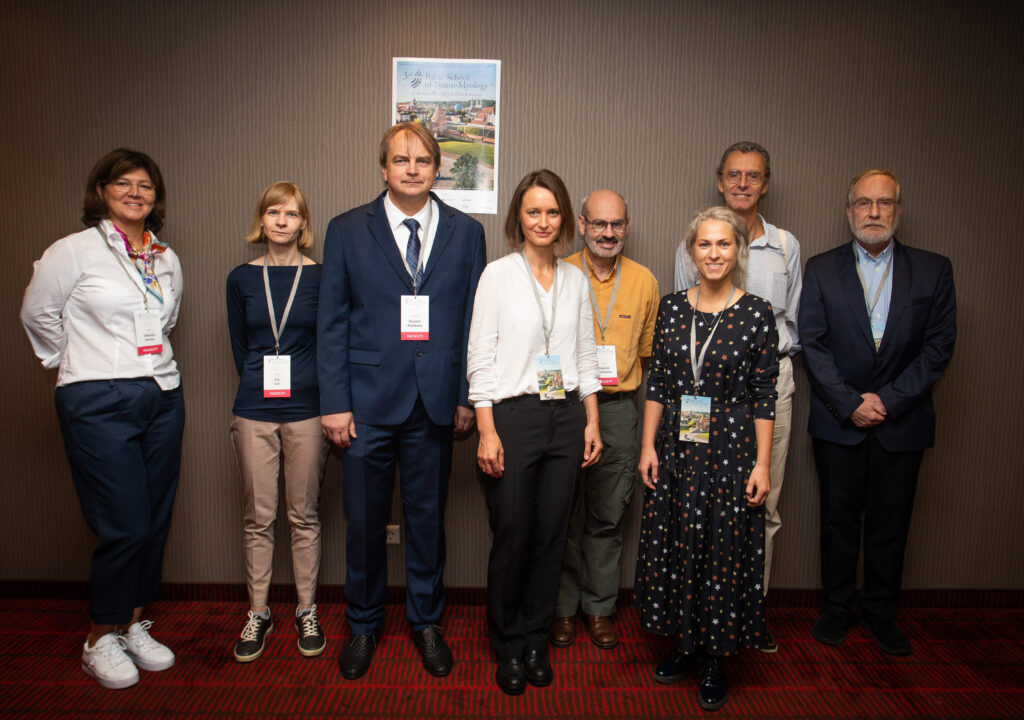
The first two Baltic Schools of Neuro-Myology took place in Latvia in 2019 and 2022. This year, on the initiative of the team of the Centre for Neuromuscular Disorders at LSMU Kaunas Clinics, this traditional event brought together participants for the first time in Lithuania. Next year, the conference is anticipated to take place in Estonia.
“Over the last four years, cooperation between neuromuscular specialists has significantly increased, and we have even created a kind of network – we can consult on organisational matters in the country as well as on specific patients. Each Baltic country has its own advantages, so we can learn from each other,” said Milda Dambrauskienė, paediatric neurologist and lecturer at the Department of Rehabilitation, LSMU Faculty of Nursing, one of the organisers of the event.
At the event, colleagues from Lithuania, Latvia and Estonia shared their experiences and presented their achievements and the challenges in organising care in their countries. Speakers with extensive backgrounds in the neuromuscular field from France, Finland, and Belgium also gave presentations.
Traditionally, one session of the conference was dedicated to the discussion of related uncertainties and patient consultation. Speakers were actively involved in this session. They shared their advice on how to further examine the patients and what other treatment options to explore.
Focus on Comprehensive Care
This year’s topic was motor neurone diseases. This is a very broad group of diseases covering both children and adults. The focus of the conference was on spinal muscular atrophy (SMA) and amyotrophic lateral sclerosis (ALS).

“Although the treatment options for SMA and ALS still are radically different, multidisciplinary care is crucial for both diseases. One of the highlights of the 3rd Baltic School of Neuro-Myology was the involvement of other specialties in the team. It is important because a mere diagnosis is not enough – the patient needs comprehensive care. Therefore, the conference programme included topics on respiratory care, orthopaedic issues, and mental health in patients with a motor neurone disorder,” said M. Dambrauskienė.
A pre-conference workshop on “Motor Neurone Diseases: Today and Tomorrow” was also held the day before the event, focusing on the role of nurses in caring for patients with a motor neurone disease.
According to Vita Balčienė, Head of Nursing Service at the Department of Neurology of Kaunas Clinics, one of the main duties of a nursing specialist is to assess the patient’s reliance on another person for the performance of daily routines and to assess the patient’s ability to perform these routines on their own. According to her, it is essential to plan and carry out nursing interventions in view of the situation and to evaluate the results.
“Caring for a patient with a motor neurone disease is special in that the patient’s movement, speech, swallowing and breathing impairments also affect other vital activities. In the long term, there is a need for support in a positive adaptation to new circumstances when the illness makes certain care problems unmanageable. Often it is just a matter of making the patient feel as comfortable as possible and minimising the pain in case of an imminent death,” said a speaker at the pre-conference seminar.
The event focused not only on the physical needs of patients but also on their mental well-being. A presentation on mental health in ALS by Dr. Raimonda Petrolienė, lecturer at the Department of Psychology, LSMU Faculty of Public Health, attracted particular interest. In her presentation, she shared her insights on what is important for the patient, the patient’s relatives, and healthcare professionals.
Emphasis on the Role of Differential Diagnostics

According to Evelina Grušauskienė, doctoral student at LSMU and Head of the Centre for Neuromuscular Disorders at Kaunas Clinics, a detailed differential diagnosis is crucial when treating patients with a motor neurone disease.
“The majority of motor neurone diseases do not have a specific treatment, which is why careful differential diagnosis is so important, meaning we must make sure that we are overlooking a treatable disease. This was also illustrated by the clinical cases presented at the conference: sometimes after years of searching, motor neurone disease is ruled out, the diagnosis is specified, and the patient can be treated in a way that completely transforms their well-being. On the other hand, the situation may be completely different: the patient is diagnosed with another disease, say muscular dystrophy, but in fact, after genetic testing, it turns out that the patient has SMA and can be administered specific drugs,” said neurologist E. Grušauskienė.
According to her, analysis has a big role in specifying the diagnosis. This topic was the focus of one of the conference sessions. During the session, E. Grušauskienė reviewed aspects of ultrasound, Dr. Gintautė Samušytė, a neurophysiologist at the Department of Neurology, reviewed aspects of transcranial magnetic stimulation in the case of ALS, and pathologist Neringa Valtienė reviewed the usefulness of muscle biopsy for differential diagnosis.
Lithuania among the Leaders not only in the Baltics but also in Europe
The Baltic School of Neuro-Myology was organised by Dr. M. Dambrauskienė who mentioned that the conference provided an opportunity to compare how neuromuscular disease prevention was carried out in the Baltic States and other European countries.
“Neuromuscular diseases are an area that has changed dramatically over the last decade, as genetic diagnostics have expanded considerably. Increasingly more clinical trials are being carried out to find treatment solutions. One of the new developments, launched this year in Lithuania, is universal newborn screening for SMA. It has been running for two years in Latvia and one year in Estonia. In this sense, the small Baltic countries are even ahead of France, where pilot projects are still underway. On the other hand, in Latvia, a newborn baby is given treatment as early as the 17th day after birth, while in Lithuania the whole process takes more than a month before the child is administered the medicine. At the conference, we discussed these differences, shared our experiences, and inspired each other to adopt good practices and try to apply them in our own countries,” she said.
The 3rd Baltic School of Neuro-Myology highlighted the countries’ areas for improvement in this field, but at the same time revealed the strengths of each country. According to Lect. M. Dambrauskienė, Lithuania is a leader in terms of patient treatment options.
“At present, our country is clearly leading among the Baltic countries in terms of access to treatment for patients with spinal muscular atrophy. This is regardless of their age and functional status because at any stage of the disease, it is possible to halt its progression and help the patient maintain their maximum potential. In addition, we have experience in treating patients with all three of the world’s registered medicines and have built a multidisciplinary comprehensive care team that has been working together for more than ten years,” the lecturer kept listing the achievements of the Lithuanian medical system.
She was seconded by another speaker of the pre-conference seminar, Dr Edita Jazepčikienė, a physiotherapist and a lecturer at the LSMU Department of Rehabilitation.
“I am glad that Vilnius and Kaunas have high-profile centres for rare neuromuscular diseases and that the care they provide is very professional without any doubt. The conference placed a strong emphasis on universal screening of babies for SMA, and it is great that Lithuania is one of the leaders in Europe in this field,”, Dr. E. Jazepčikienė.

